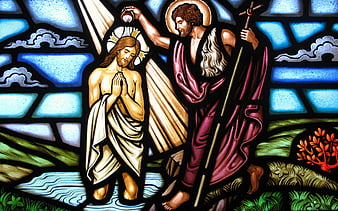Denha reminds us of the baptism of Jesus. It is a Syriac word that means dawn or sunrise. Latin Church uses the term Epiphany, originating from Greek and means Appearance. It also commemorates the mysterious visit of the magi to the Baby Jesus. Epiphany means ‘manifestation’. It is of Greek origin that means “to show, to display”.
Denha refers to the public manifestation of the Trinity at the Baptism of Jesus, where God the Father testified Jesus as the Son of God and the Holy Spirit descended upon Jesus in the form of a dove. (Mt.3:17: Mk. 1:11; Lk. 3:22).
Thus the Holy Trinity is revealed to the world, so also Jesus as the Incarnate Son of God.
Denha is the feast of the great revelation of Jesus as the light of the world. Jesus is the real Sun that dawned in the world through Incarnation. During the hidden life of Jesus in Nazareth, the public did not recognize Him as the real Sun who illuminates the whole of humanity. He was manifested to the public by God the Father at His Baptism.
According to the Catechism of the Catholic Church:
The Epiphany is the manifestation of Jesus as Messiah of Israel, Son of God, and Saviour of the world. the great feast of Epiphany celebrates the adoration of Jesus by the wise men (magi) from the East, together with his baptism in the Jordan and the wedding feast at Cana in Galilee.
In the magi, representatives of the neighboring pagan religions, the Gospel sees the first fruits of the nations, who welcome the good news of salvation through the Incarnation.
The Western/ Latin Church celebrates 6 Jan as the visit of the Magi, whereas for the Eastern Churches (Syriac, Assyrian, Coptic, Armenian, Melkite, Antiochian, Byzantine, Greek), 6 Jan is the Baptism of the Lord.



